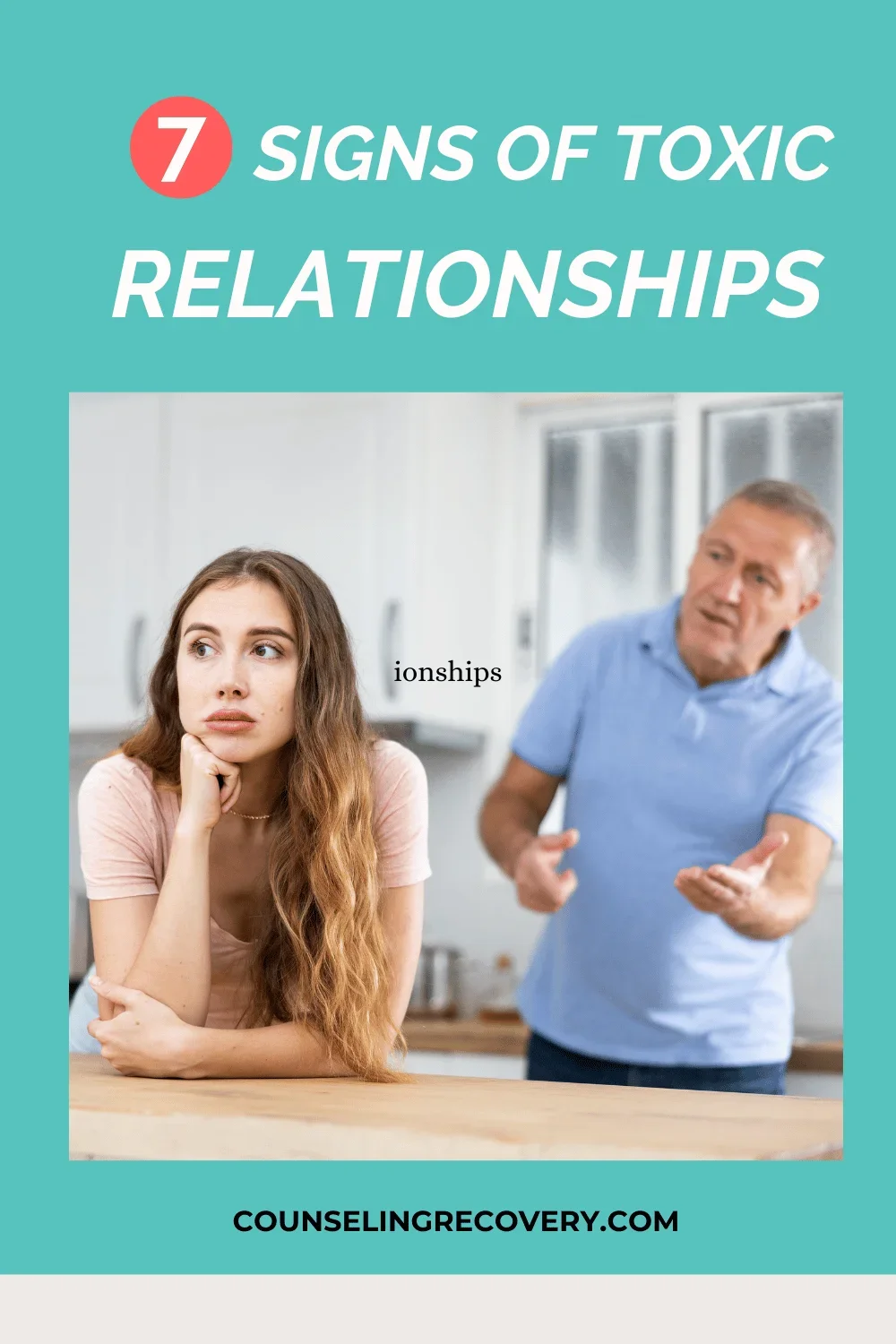7 Signs of a Toxic Relationship and How to Break Free
Recognizing the Signs of a Toxic Relationship
Relationships are meant to be a source of love and support, but in toxic relationships your emotional needs are ignored, dismissed, or even used against you. Learn how to spot the signs of a toxic relationship and how to break free.
Toxic relationships can be difficult to recognize, especially if you’ve been conditioned to accept certain behaviors as normal. The good news is that awareness is the first step toward breaking free. Below are some common signs of toxicity in relationships that may resonate with you.
1. Your Feelings Are Not Important in the Relationship
One of the first signs of a toxic relationship is when your feelings are not acknowledged or honored. Instead of feeling loved and respected, you feel invisible, as if your needs don’t matter.
Having your feelings dismissed on a regular basis reinforces low self-esteem. When you’re sad or upset, instead of offering support, your partner might tell you that you shouldn’t feel that way, or minimize the importance of your feelings.
They might even make you feel guilty because your feelings make them uncomfortable. The toxic person only cares about their own feelings rather than supporting you in times of need.
2. The Relationship Revolves Around the Other Person’s Needs
A toxic relationship often revolves around one person’s needs, leaving no room for yours. Narcissistic relationships are a clear example of this, where the narcissist controls and manipulates their partner to maintain their attention.
Often, they cannot tolerate their partner’s needs because their self-image requires constant validation. Similarly, in relationships with addicts, the chaos created by the addiction often overshadows everything else. Gaslighting, manipulation, and denial are common, leaving you feeling emotionally drained and unheard.
3. Your Partner Makes You Feel Guilty for Spending Time with Family or Friends
Isolation is another hallmark of a toxic relationship. Your partner may try to distance you from loved ones, making you feel guilty for spending time with them. This creates an unhealthy dependency on your partner, leading to feelings of loneliness, depression, and diminished self-esteem.
4. There Is a Continuous Pattern of Blame and Shame
In a toxic relationship, you may notice a recurring pattern of blame and shame. Whenever something goes wrong, you’re the one at fault—regardless of the circumstances. Disagreeing or expressing your feelings often leads to shaming, making you doubt your own perceptions. Over time, you may start believing that you’re responsible for all the relationship’s problems, which further diminishes your confidence.
5. Your Partner Lacks Empathy When You’re Hurting
Empathy is the cornerstone of healthy relationships, but in toxic ones, it’s often absent. When you’re in pain or facing a crisis, your partner may respond with indifference, frustration, or even anger. They focus solely on their own comfort, leaving you unsupported during times when you need them most.
6. There Is a Continuous Cycle of Mental, Physical, or Sexual Abuse
Abuse in toxic relationships follows a predictable cycle. It starts with tension building, where there is stress or agitation. This leads to an abusive incident, such as an outburst, violence, or degrading comments. Then comes the honeymoon phase, where the abuser may apologize, shower you with affection, or promise to change. Over time, this cycle repeats, keeping you trapped in a destructive pattern.
7. You’re Told You Need to Change for Them to Be Happy
In toxic relationships, you might hear, “If only you were better, prettier, thinner, more patient, then I’d be happy.” This shifts the emotional responsibility onto you, making you believe their unhappiness is your fault.
If you struggle with codependency, you’re even more likely to internalize this message, trying to “fix” the relationship by changing yourself instead of recognizing that their behavior is the real issue.
Breaking Free from a Toxic Relationship
While awareness is the first step in creating positive change, it’s also important to consider getting additional support. Toxic relationships are known to be emotionally draining so finding healthy ways to get support is critical. I always suggest Al-Anon, a free, 12 step program that focuses on healing dysfunctional relationship patterns.
Final Thoughts
Recognizing the signs of toxic relationships is not about placing blame on yourself—it’s about validating your reality and understanding that you deserve better. Toxic relationships don’t define your worth or your capacity for change.
With awareness, support, and self-compassion, you can begin to break free from these patterns and create a healthier, more fulfilling life. Remember, you are worthy of a relationship where your feelings, needs, and well-being are cherished.
Grab my FREE guide for Healing One-sided Relationships: The Codependent Solution.

